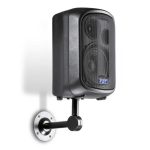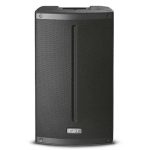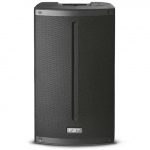The Role of Backflow Prevention Devices in Protecting Water Supply Safety
Ensuring safety and quality of water is a fundamental aspect in various applications, especially in agricultural practices. For irrigation systems, specific measures are required to prevent contamination from reverse flow, safeguarding the source from undesirable pollutants. Awareness of these protective mechanisms is key for property owners and managers focused on maintaining water integrity.
Implementing adequate solutions, such as water flow control mechanisms, is not just a regulatory demand but a responsible choice. These systems play a crucial role in preserving the environment and protecting public health, particularly in regions where water sources might be compromised. Explore more about these protective solutions to understand their role and benefits.
Neglecting the necessity of such installations can lead to severe consequences, including legal repercussions and environmental damage. A well-planned approach to water management ensures that irrigation practices do not inadvertently introduce harmful substances back into the supply chain. Embracing the right technology can contribute significantly to sustainable water use.
How Backflow Prevention Measures Safeguard Drinking Water Quality
Contaminated water can pose serious health hazards, making safeguards against reverse flow crucial. One of the primary methods to achieve this is through the installation of devices within plumbing systems, particularly in environments where irrigation systems are utilized. These tools play a pivotal role in preventing the introduction of pollutants into potable water supplies. For more information on these solutions, visit this resource.
By ensuring that water flows in one direction, these installations significantly reduce the risk of contamination from fertilizers, chemicals, and other harmful substances. Annual testing is also a recommended practice to confirm that these systems are functioning correctly, providing peace of mind to homeowners and property managers alike. To guarantee optimal performance, having these measures installed by professionals is essential, as they possess the expertise to identify specific needs and potential risks within the plumbing layout.
Ready for excitement? Visit https://csaplumbingrooter.com/ and play thrilling slots now.
Regular maintenance and adherence to local regulations further enhance the reliability of these protective solutions. By prioritizing the integrity of drinking water through such measures, communities can ensure the health and safety of their residents, fostering a cleaner and safer environment.
Key Types of Backflow Prevention Devices for Residential Use
Residential water safety relies on various mechanisms designed to protect household water supplies from reverse flow. Understanding the different types of these systems can help homeowners make informed decisions. Common solutions include air gaps, reduced pressure zone assemblies, and check valves, each serving a unique purpose in ensuring safe drinking water.
Air gaps create a physical separation between the water supply and potential contaminants. This method is simple yet highly effective for faucets and sinks. Reduced pressure zone assemblies operate under specific pressure settings, providing reliable protection against backflow. Check valves automatically allow water to flow in one direction, thus preventing reverse movement. Regular inspections and annual testing are recommended to ensure these systems function correctly and comply with local regulations.
Choosing the appropriate mechanism can safeguard health and prevent contamination in residential areas. These systems are often required for irrigation systems, protecting not just the home but also surrounding properties. Having reliable installations delivers peace of mind, knowing that your water supply is well-protected. Prioritizing these measures contributes to maintaining a safe environment for your family and community.
Regular Maintenance and Testing Requirements for Backflow Solutions
To effectively safeguard health and protect water supply, routine maintenance and testing of these solutions are crucial. Local regulations often stipulate specific intervals for checking and servicing these systems. Homeowners should be aware of the necessity to comply with regulations to ensure their systems function properly. For an expert approach, consider installation by professionals who understand the intricacies involved.
Regular testing is required for irrigation systems to prevent contamination and maintain water quality. This proactive measure not only complies with local statutes but also provides peace of mind, knowing that your water remains safe for consumption. Engaging certified technicians for inspection and maintenance adds an extra layer of security to your water supply management. For more information, visit https://csaplumbingrooter.com/.
Neglecting routine checks may lead to failures that could compromise water safety. Scheduled assessments allow for the early detection of issues, ensuring that any necessary repairs can be undertaken before they escalate. Adopting this preventative approach helps to avoid potential hazards to health and mitigates risks associated with unmonitored systems.







